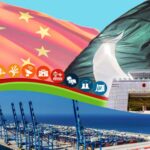KARACHI: A body of tax practitioners has questioned Federal Board of Revenue (FBR) that how taxpayers fail to file returns for tax year 2019 on September 30, 2019 when the tax authorities extend the date ahead of cutoff time.
The Karachi Tax Bar Association (KTBA) in a letter to FBR chairman referring the Circular No. 14 of 2019 dated September 30, 2019 whereby the due date for filing the returns of income had been extended till October 31, 2019 in respect of Individuals and AOPs, and Companies following Special Tax Year.
“At the outset, regarding the construction of the above mentioned Circular, it is pertinent that it was communicated to the taxpayers around 9:30 pm on September 30, 2019 whereas the deadline was up to 12:00 am.
“The extension has purportedly been announced on account of alleged ‘failure of the taxpayers’ to file the returns of income by the due date of September 30, 2019 as the Circular states that the taxpayers (Individuals, AOPs and Companies) “failed to file their income tax returns/ statements.”
On behalf of its members, the bar takes serious exception to the use of this uncalled for statement for, the said extension was necessitated due to the FBR’s failure to timely issue the final forms of returns of income.
Even after issuance of SRO 979(I)/2019 on 02 September 2019, it took couple of more days for the FBR to upload these forms on IRIS and after the same having been uploaded, were carrying certain system issues/ technical glitches as well as interpretational matters.
These were duly intimated by the Bar vide its letter dated 20 September 2019.
The tax bar is of the view that instead of blaming the taxpayers who “could not file” the income tax returns by September 30, 2019 on account of the above discussed reasons, the Board acknowledging the same would have allowed the taxpayers without blaming them, due time of ninety days to file the income tax returns.
As regards the extension allowed to the companies, it is tainted with an unprecedented condition of payment of 95 percent of admitted income tax liability by September 30, 2019.
“This condition of payment of 95 percent tax liability is completely unheard and couldn’t be found to have existed anywhere under any provision of the Income Tax Ordinance, 2001 including the very section 214A under which the aforesaid Circular has been issued.”
Besides the debate of any legality, what needs to be emphasized here remain that had there been any patent or latent intention of the Board to extend the due date only for those Companies which would have paid 95 percent of their income tax liability, the same should have been communicated clearly well before the last date of filing to provide necessary time to them to deposit the income tax demanded at the eleventh hour.
What however, has been witnessed that the above Circular, with this irrational condition, was issued at the eleventh hour and came as a surprise, when the extended banking hours had already been lapsed.
It was therefore, impossible for anyone to fulfill the condition even if they were forced too. Thought it was reported in the news media that the FBR had issued a Circular letter on this topic of payment of 95 percent income tax before availing extension in time, however the said Circular letter was never made public.
Besides the above pandemonium, what needs emphasis here is that legal and permissible time period for filing the return of income in terms of section 118 of the Ordinance has not been allowed to Companies for, the final SRO for Companies was issued on September 06, 2019 allowing only twenty four (24) days to them for filing the return of income.
It is, therefore, a strange condition in the first place and that too without any legal footing hence it would be all just and bona fide that the due number of days, which are ninety (90) from the issuance date of the final forms of return of income are allowed to the taxpayers including Companies without any pre-condition levied upon.








